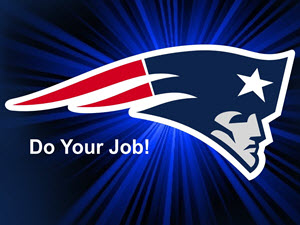
I recently had the opportunity to host an international observer in our department. As I was walking through our area and introducing them to the people that they will be working with, I realized how complex our operation really is. I know that we as a department have a significant role in the hospital, (ensuring that all medical information is accurate and secure), but it never really occurred to me just how involved the entire process is.
 Everything done for a child during their visit or stay at the hospital is documented, and those notes and orders along with all other records of contact need to go from their original format to the child’s secure electronic medical record, (EMR).
Everything done for a child during their visit or stay at the hospital is documented, and those notes and orders along with all other records of contact need to go from their original format to the child’s secure electronic medical record, (EMR).
So say for example that a child has a regular visit. The contact begins with basic notes, probably typed. The notes are then dictated into a system where they are transcribed into written notes by one of our medical transcriptionists. The notes then become available to our clinical coders who use coding language, (such as ICD-9, soon to be ICD-10), to assign the proper billing codes. All this while the information is being securely saved and stored in our medical record system. Inpatients generally have some written notes and forms that need to be attached to the child’s record. For this to happen, we retrieve charts from specified floors while our “robot on wheels” delivers additional records from other floors and patient care areas.
 We have a pretty complex system, but it works because everyone recognizes their role and performs within it. This reminds me of the New England Patriots and their “do your job” mantra. Just like with BCH, everyone on the Pats has a job. If everyone does their job well, it usually results in success. In the case of Children’s, everyone doing their job means that the department will function at its best.
We have a pretty complex system, but it works because everyone recognizes their role and performs within it. This reminds me of the New England Patriots and their “do your job” mantra. Just like with BCH, everyone on the Pats has a job. If everyone does their job well, it usually results in success. In the case of Children’s, everyone doing their job means that the department will function at its best.
I don’t think that understanding and executing roles is limited to the workplace. I believe that understanding our role is important in all areas of life, particularly when involved in building something or when we are working at making something better.
I often write about ways to make Manchester better; how to be part of moving the city forward. One can look at the city and say that nobody really wants it to move forward when in fact there may be people who want to help but they don’t know where to begin. (I understand the feeling of wanting to help but seeing an issue so big that it is difficult to truly know where to start). The simple solution is to treat the issues like a large task and break it into pieces.
I’m not going for the simple solution but rather want to get to the root of why people do not help.
 So how do we get involved if we want to? Where do we begin? We begin with our passions and look for a role that allows us to utilize our gifts and talents in those areas. If we are passionate about something then we will enjoy what we’re doing and complete the task. If that passion is general, (like a passion for Manchester as a whole), we should try a few things to see what excites us. Not everyone has the same passions or gifts and talents. What is good for one may not be for the other.
So how do we get involved if we want to? Where do we begin? We begin with our passions and look for a role that allows us to utilize our gifts and talents in those areas. If we are passionate about something then we will enjoy what we’re doing and complete the task. If that passion is general, (like a passion for Manchester as a whole), we should try a few things to see what excites us. Not everyone has the same passions or gifts and talents. What is good for one may not be for the other.
One of the most important lessons that I have learned is not to judge someone else’s service based on my passions. For example, not everyone likes writing so I shouldn’t place judgment on people who don’t get involved this way. Another lesson about service that I’ve learned is that it doesn’t have to take place on the front lines to be effective. There are so many roles not on the “front line” – they’re behind the scenes if you will. These roles are just as important as those that get most of the spotlight. These behind the scenes roles can range from making phone calls and knocking on doors to working in a mail room or posting on social media. It could even mean volunteering for a candidate that we believe will help move Manchester forward.
My point is that we don’t have to do grand things to make progress; we just have to be willing to be part of the cause. And we need to remember that while our roles may be different, they all contribute to reaching the goal. It’s about the commitment to the cause – the commitment of moving Manchester forward.
 About the author: Brian Chicoine is a New Hampshire native who moved to Manchester from Raymond in 1980 at the age of 8. He attended Gossler Park Elementary, Parkside and Southside Junior High, and West High, from which he graduated in 1990. After attending Notre Dame College in Manchester, Brian completed his undergraduate degree at Rhode Island College in Providence. Brian and his wife Jackie then came to Manchester in 2004 and were involved in various outreach organizations. Their two boys were born in Manchester during this time. After his position was eliminated in 2009, Brian and his family returned to Rhode Island. They have been living in Providence since 2010. Brian and his family love Manchester and are planning on returning within the next few months. Brian is currently working at helping the city move forward by connecting with other stakeholders and becoming involved with like-minded groups. Brian is also laying the foundation for an organization that will help strengthen the city and help it move forward.
About the author: Brian Chicoine is a New Hampshire native who moved to Manchester from Raymond in 1980 at the age of 8. He attended Gossler Park Elementary, Parkside and Southside Junior High, and West High, from which he graduated in 1990. After attending Notre Dame College in Manchester, Brian completed his undergraduate degree at Rhode Island College in Providence. Brian and his wife Jackie then came to Manchester in 2004 and were involved in various outreach organizations. Their two boys were born in Manchester during this time. After his position was eliminated in 2009, Brian and his family returned to Rhode Island. They have been living in Providence since 2010. Brian and his family love Manchester and are planning on returning within the next few months. Brian is currently working at helping the city move forward by connecting with other stakeholders and becoming involved with like-minded groups. Brian is also laying the foundation for an organization that will help strengthen the city and help it move forward.
Brian holds a Bachelor’s degree from Rhode Island College and a Master of Public Administration degree from Grand Canyon University. Brian currently works at Boston Children’s Hospital. He is also founder of a Facebook Group, Manchester Forward. You can contact him at brian.chicoine1636@gmail.com.

You’re one click away! Sign up for our free eNewsletter and never miss another thing







